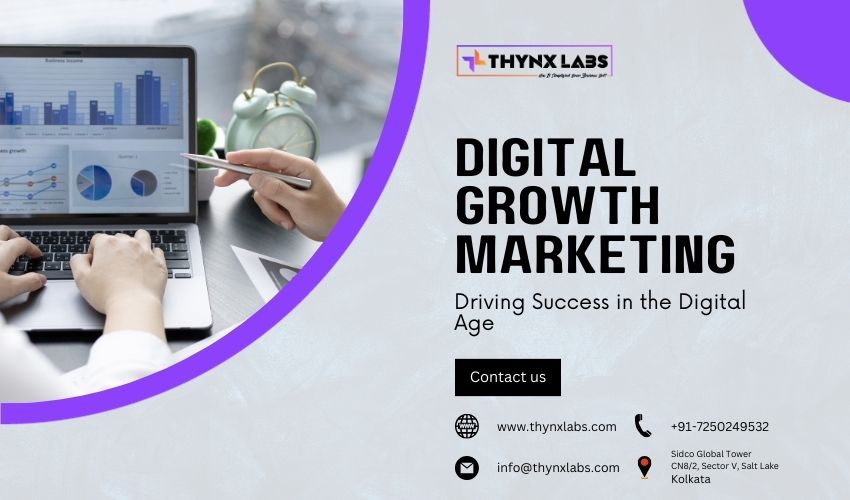The Role of Data in Digital Marketing in 2023
The Role of Data in Digital Marketing in 2023
In the ever-evolving landscape of digital marketing, staying ahead of the curve is essential. As we step into 2023, one thing is abundantly clear: data is at the heart of successful digital marketing strategies. In this article, we'll delve into the pivotal role data plays in shaping the future of digital marketing.
1. Understanding the Data Revolution
In recent years, there has been a monumental shift in how businesses perceive and utilize data. The rise of advanced analytics tools and technologies has empowered marketers to gain profound insights into consumer behavior, preferences, and trends.
2. Personalization: Tailoring Experiences
Data-driven insights enable marketers to create personalized experiences for their audience. By analyzing consumer data, businesses can understand individual preferences and provide tailor-made content, product recommendations, and offers. This level of personalization enhances customer satisfaction and drives conversions.
3. Predictive Analytics: Anticipating Needs
Predictive analytics leverages historical data to predict future outcomes. In digital marketing, this means foreseeing customer needs and trends before they emerge. By understanding what customers might want, businesses can proactively meet those needs, providing a seamless experience.
4. Artificial Intelligence and Machine Learning
AI and machine learning algorithms process vast datasets at incredible speeds. Marketers can utilize these technologies to analyze consumer behavior patterns, optimize ad campaigns, and even automate customer interactions. This not only saves time but also ensures precision in targeting the right audience.
5. Data-Driven Content Strategies
Content is king in digital marketing, and data refines content strategies. Through data analysis, marketers can identify the type of content that resonates most with their audience. They can create engaging blogs, videos, and social media posts tailored to specific demographics, thereby maximizing reach and impact.
6. Enhanced Customer Engagement
Understanding customer behavior through data allows businesses to engage their audience effectively. By sending timely and relevant messages, businesses can nurture relationships with customers. Whether it's through email marketing or social media interactions, data-driven strategies enhance customer engagement and loyalty.
7. Social Media Analytics: The Power of Insights
Social media platforms are treasure troves of data. Marketers can analyze social media interactions to gauge customer sentiment, preferences, and opinions. These insights are invaluable for crafting targeted social media campaigns that resonate with the audience, driving brand awareness and loyalty.
8. Mobile-First Strategies
With the majority of internet users accessing content via mobile devices, data-driven insights are pivotal in creating mobile-first strategies. By understanding how users engage with content on smartphones and tablets, businesses can optimize their websites and marketing materials for a seamless mobile experience.
9. Data Security and Privacy
As data takes center stage, ensuring its security and respecting user privacy are paramount. Marketers must adhere to strict data protection regulations and prioritize ethical data usage. Building trust with consumers is contingent on safeguarding their data and being transparent about how it is utilized.
10. Measuring ROI and Performance
Data enables marketers to measure the return on investment (ROI) of their campaigns with precision. By tracking key metrics, businesses can assess the performance of their marketing strategies. This data-driven approach allows for continuous optimization, ensuring that every marketing dollar is spent effectively.
Conclusion
In 2023, the role of data in digital marketing cannot be overstated. From personalization and predictive analytics to AI-driven strategies and social media insights, data is the driving force behind successful campaigns. Embracing the data revolution equips businesses with the tools they need to not only survive but thrive in the competitive digital landscape.
Frequently Asked Questions (FAQs)
Q1: How does data improve customer engagement in digital marketing?
Data helps businesses understand customer behavior, allowing for personalized and timely interactions, thereby enhancing engagement and loyalty.
Q2: What are predictive analytics, and how are they used in digital marketing?
Predictive analytics use historical data to predict future outcomes, allowing marketers to anticipate customer needs and trends, enabling proactive strategies.
Q3: How can businesses ensure data security and privacy in their digital marketing efforts?
Businesses can ensure data security by adhering to strict regulations, implementing encryption measures, and being transparent about data usage to build trust with consumers.
Q4: What role does social media analytics play in digital marketing strategies?
Social media analytics provide insights into customer sentiment, preferences, and opinions, enabling businesses to craft targeted campaigns that resonate with their audience.
Q5: Why is mobile-first strategy important in digital marketing, and how does data support it?
With the majority of users accessing content on mobile devices, data helps optimize websites and marketing materials for seamless mobile experiences, ensuring maximum engagement.


